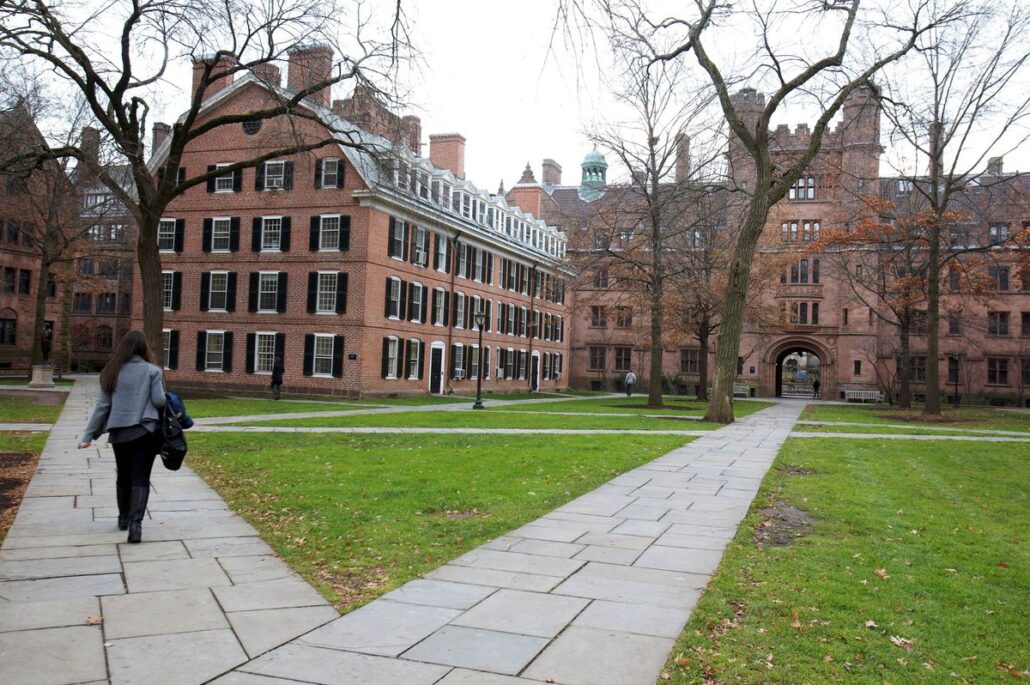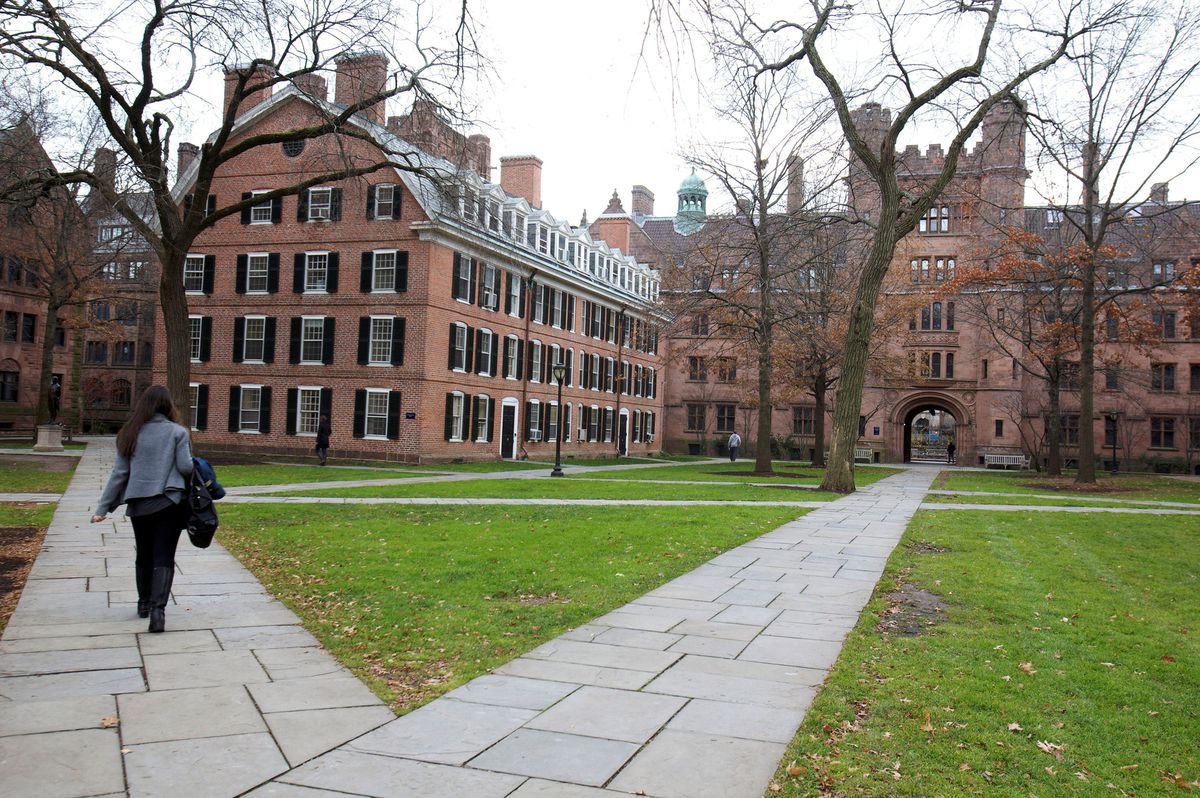Class Notes – May/Jun 2021
 Cynthia Mariani of Yale has reported to us on Andrew Yang, the current recipient of the Class of 1969 Memorial Scholarship Fund. Andrew, a first-year student, says: “I am excited to meet people who are passionate for learning and making the world a better place.” Your scribe bets that he will, and if you want to contribute to the fund, please contact Don Galligan at djgalligan@msn.com.
Cynthia Mariani of Yale has reported to us on Andrew Yang, the current recipient of the Class of 1969 Memorial Scholarship Fund. Andrew, a first-year student, says: “I am excited to meet people who are passionate for learning and making the world a better place.” Your scribe bets that he will, and if you want to contribute to the fund, please contact Don Galligan at djgalligan@msn.com.
Cynthia also writes: “It is clear that Yale’s mission to educate aspiring leaders who serve all sectors of society is more important than ever before. We need scientists, doctors, teachers, and policymakers who bring optimism and imagination to their quest for solutions; we need artists and humanists to bring us together and illuminate our shared experiences. The enduring support of the Class of 1969 Scholarship Fund ensures that Yale can admit the brightest students from around the globe, offering them a world-class education rich in experience and opportunity. Because of you, the next generation of Yale alumni will go on to create, inspire, and lead in every realm of human endeavor.” The rest of this column is devoted to one of us who did exactly that.
Edward S. (“Ned”) Seligman died on January 7, 2021. Fred Morris has written a moving tribute to Ned, with many pictures, and comments from other classmates, on the class website at yale1969.org. Your scribe can include here only a small part of Ned’s full life course. As Fred writes: “Ned came from a prominent San Francisco family, although he led a life that was far from taking advantage of that privilege. The Seligman family had been prominent financiers and investment bankers on the East Coast before the Great Depression….Although I knew Ned, I didn’t room with him until senior year when he, Irwin Sentilles, Bill Hall and I shared a quad…He had a quick wit and infectious laugh. He was upbeat and happy. He and I found something in each other during senior year that bonded us as close friends for life.
“Ned joined the Peace Corps after graduating from Yale. I think his first assignment was in Upper Volta, now Burkina Faso…Most of those years were spent in Africa. He had stints with the World Wildlife Federation and USAID. Based on my happiness in Minnesota, he moved to St. Paul for a year and worked in the Minnesota Science Museum. He was “trying out” living in the U.S. But his heart really was in Africa and, in any event, the Minnesota winters were too long and cold for him. At some point, he re-joined the Peace Corps and returned to Africa as the director of Peace Corps operations in various locations. His last Peace Corps stop was in Sao Tome e Principe, a small island country on the Equator off the West Coast of Africa. He was the director of the Peace Corps there for several years.
“When the Peace Corps closed down in Sao Tome, Ned started an NGO – STeP UP – to carry on projects helping the people of Sao Tome. The list of projects is long…you can visit STeP UP’s website at http://www.stepup.st to read about the organization. Ned returned to the U.S. each year to get annual health check-ups, visit friends, and raise money for STeP UP…Many years ago, I received a call from Ned’s mother telling me that he would not be visiting because he had become seriously ill. Evidently, he had contracted a MRSA staph infection during a routine dental visit. A few days after the dental appointment, he collapsed and went into a coma. He later told me that the nurses in the ER referred to patients by their chances of dying…he was called “Mister 99,” as in there was a 99% chance he would not survive. He remained hospitalized for months with a highly resistant staph infection. The doctors ultimately had to amputate the ends of his fingers and his legs below his knees in order to eliminate the infection. Antibiotics were unable to clear the infection from his extremities.
“Ned spent several months in rehab facilities to regain his strength and learn how to function with his new reality. My wife and I visited him during his rehab, and he was the same old Ned…jovial, light-hearted, and no complaints. When he was sufficiently recovered, he headed back to Sao Tome to continue his work with STeP UP.
“In the many years since his illness, I’ve never heard Ned utter a single word of complaint. I’ve never heard him go down the “woe is me” path. To the contrary, Ned didn’t let his considerable handicap stop him. He tooled around D.C. in his motorized wheelchair as if he had no obstacles. He would hop onto the D.C. Metro and meet my wife and me at a restaurant or a museum anywhere in the city. More remarkably, he would make the annual trip from Sao Tome to D.C. by himself. The trip took nearly 24 hours.
“Ned is easily the most selfless person I’ve ever known. His upbringing gave him opportunities to lead a privileged and material life but he chose to lead a life that served others. He never surrounded himself with the trappings of wealth.
“Intellectually, he was sharp and thoughtful. And, while he might have complained about the state of our political affairs or dealing with some bureaucratic hassle while trying to make his travel arrangements, he never complained about being in a wheelchair or about his handicap. He took life as it came to him and moved forward.
“He was a member of my family, a friend of my wife and sons. That exchange will go silent now and I will miss him deeply. I will miss Ned for the rest of my life. But, I have photos and memories that will make me smile. I guess the mark of how we live our lives is how we are remembered and how we’ve affected others. Ned may not be here now but he isn’t gone.”

